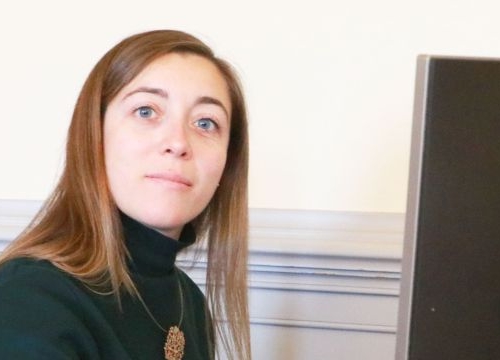Meet our Researchers: Chiara Redaelli


Geneva Academy
3 March 2020
Dr Chiara Redaelli is one of our Research Fellows in international humanitarian law (IHL). She is also an adjunct professor at the European School of Political and Social Sciences (Catholic University of Lille) and at the International University in Geneva.
Tell us about you: What’s your Background?
I have a background in public international law, with a focus on IHL, human rights, and the use of force. In 2018, I defended my PhD in international law at the Graduate Institute of International and Development Studies, with a thesis on military interventions in internal conflicts. I then spent one year at Harvard Law School to conduct postdoctoral research on peace and aggression.
Why Did you Choose to Work in the Field of IHL and Human Rights?
After a bachelor in law and a master in international law, I worked for the United Nations High Commissioner for Refugees (UNHCR) in Bangladesh and China, where I witnessed the dramatic humanitarian consequences of wars. Specifically, in Cox’s Bazar (Bangladesh), I was working with the Rohingya population who was fleeing conflict and persecution in Myanmar. Listening to the dramatic stories of the refugees, it was difficult not to agree with Cicero’s maxim ‘silent enim leges inter arma’ (laws are silent among [those who use] weapons). This is what really triggered my interest in IHL and human rights law: while the law provides means to protect civilians, it was clear that the challenging part was the implementation of such rules.
What are the Research Projects you’re Currently Working on?
I am in charge of the Rule of Law in Armed Conflicts (RULAC) project. RULAC is a unique online portal that identifies and classifies all situations of armed violence that amount to an armed conflict under IHL. Specifically, it provides information about the classification of armed conflicts, their parties and the relevant legal framework. Currently, RULAC is monitoring 37 armed conflicts involving more than 50 states.
Furthermore, in collaboration with the Human Rights Centre of the University of Essex, I am in charge of the organization of the conference Current Issues in Armed Conflicts (CIAC), an annual event that provides a space for academics, practitioners, and diplomats to discuss legal and policy issues and recent developments related to armed conflicts in general and IHL in particular.
Why is this Project Important?
RULAC is the only independent global classification of armed conflicts under international law. While there are other databases that monitor situations of violence and conflicts, this is the only one that classifies conflicts according to the criteria set out by IHL. The legal classification of conflicts is crucial not only to determine the applicable legal framework, but also to trigger the mandate of the International Committee of the Red Cross (ICRC), and to assess the possible commission of war crimes.
What about its Impact?
As an impartial and independent classification of armed conflicts, RULAC has a far-reaching impact. Indeed, it is an essential reference for anyone who works on humanitarian issues, human rights, peace and security—such as governments, international and non-governmental organizations, international courts and tribunals.
The classification of armed conflicts is crucial for international criminal tribunals, inasmuch as it determines the applicable legal framework. For instance, war crimes can only be committed during armed conflicts. Furthermore, under international criminal law, the rules applicable to international and non-international armed conflicts are different in certain circumstances.
Similarly, international organizations and NGOs can benefit from the classification and legal analysis of armed conflicts, namely when they want to provide humanitarian relief to the civilian population.
According to you, what are the Key Challenges today in IHL and Human Rights?
These days, international law in general – and IHL and human rights in particular – are facing challenging times. As the world is increasingly authoritarian, the idea that international law is the foundation of a liberal and cosmopolitan community of states has been questioned at many levels. While being pessimistic about the current state of international affairs might seem the obvious reaction, historically, international law has faced pivotal challenges, yet it has always succeeded in adapting and, eventually, stabilising.
On a More Personal Note: What do you Enjoy doing in your Spare Time?
In Geneva, I enjoy running along the lake and seeing friends for coffee and aperitif. When I am not in town, I love scuba diving: the sense of peace that surrounds you as soon as you descend into the waters is unmatchable.







